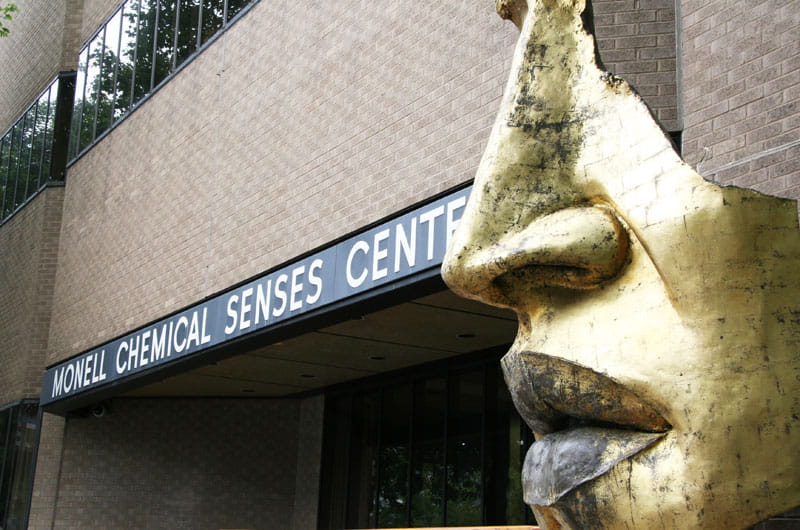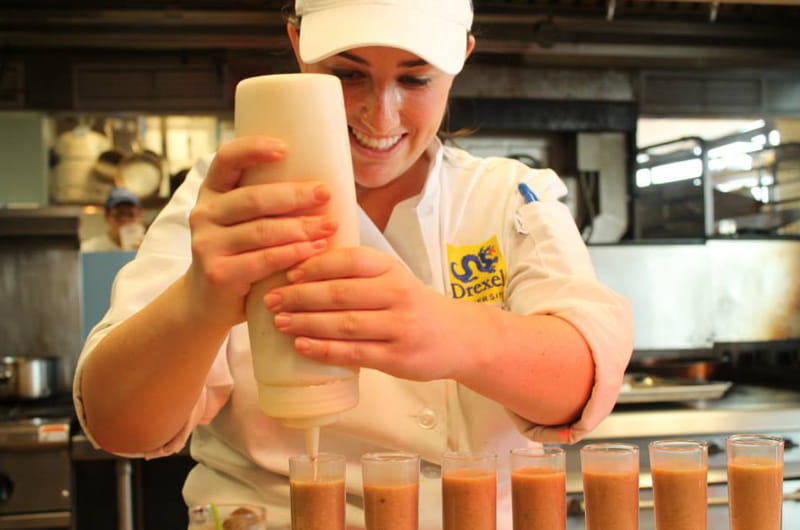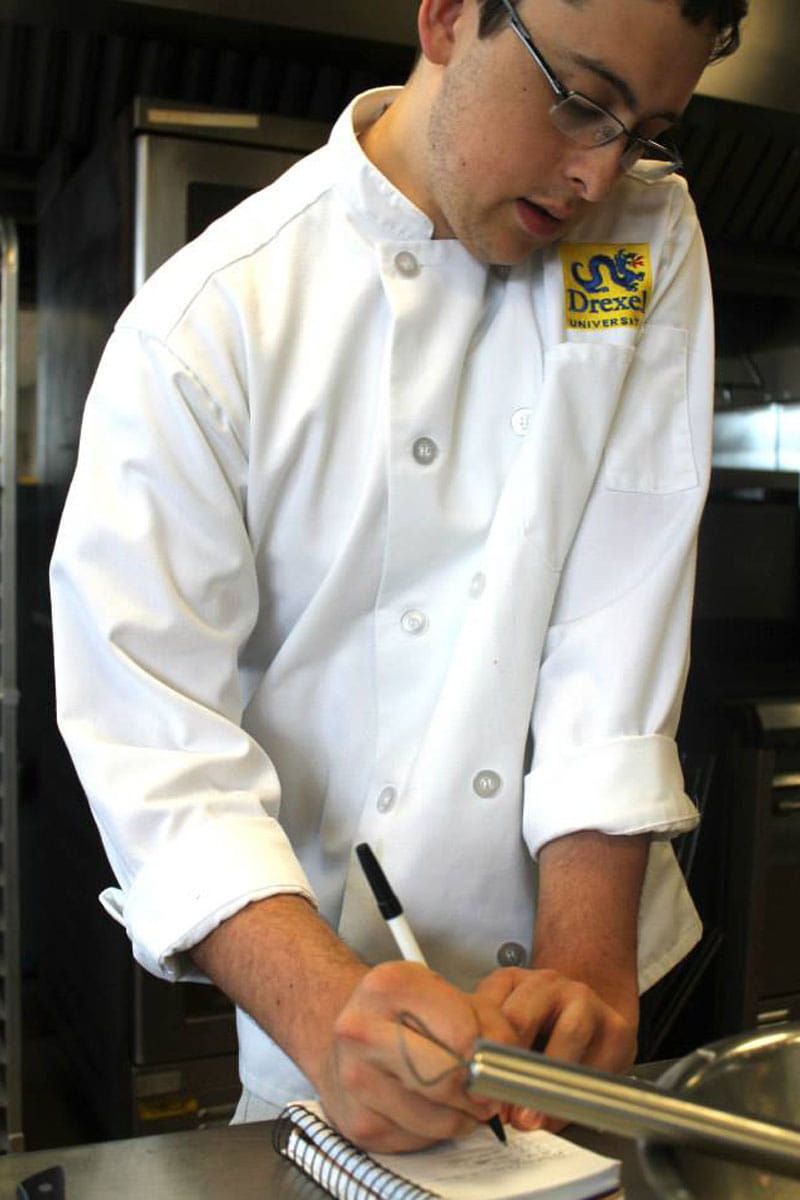Drexel Partners with Monell Chemical Senses Center to Become a Leader in Sensory Science of Food Education

- Men and Residents of Higher Crime Areas See Greater Benefit from Community Parks, in Reduction of Deaths from Heart Disease
- Happy New Year 2025! Try These Proven Lifestyle Tips to Make Your New Year Happier.
- Faculty Highlights: Recent Awards and Grants
- A Framework for Community-Driven Environmental Justice Guided by the Community

Students who are passionate about applying science to the development of safer, healthier food products will now have the opportunity to learn from world-class experts in the sensory science of taste and smell, thanks to a new partnership between Drexel University and the Monell Chemical Senses Center, the premier sensory science research institution. The partnership will position Drexel to become a leader in sensory science of food education.
At the Monell Center (3500 Market St.), which is adjacent to Drexel, scientists from many disciplines work together on cutting-edge research programs that focus on understanding the mechanisms and functions of taste and smell and define the broad significance of these senses in human health and disease.

The partnership, known as the Drexel-Monell Food Science Program, will provide both undergraduate and graduate food science students in Drexel’s Center for Hospitality and Sport Management with advanced sensory training and real-world laboratory-based research experience. Students also will benefit from unique training in both the chemical senses and food science.
“This partnership is a win for us on so many levels. It gives our students hands-on experiences with the premier research institution in sensory science; it connects them to Monell’s many partners in the flavor, food and fragrance industries; and it opens up new opportunities for collaborative research and teaching,” said Jonathan Deutsch, PhD, professor and founding director of the Center for Hospitality and Sport Management. “I am grateful for the vision of the board and faculty for launching this innovative approach.”
Other features of the collaboration include cooperative education, or co-op, opportunities for undergraduate and graduate food science students at Monell’s state-of-the-art scientific research facilities, opportunities for Monell’s faculty to teach courses at Drexel and formal collaboration on projects and advanced research for members of the Drexel and Monell faculty.
The collaboration will allow Drexel to develop additional graduate coursework in advanced sensory evaluation techniques, sensory systems and social senses as well as a practicum course in a Monell research lab.
To Monell, the collaboration will provide a skilled workforce for recruiting interns, co-ops and employees; a talent pool of Monell-trained graduates to offer industry partners for recruiting; and a sister site for basic and applied food science research and access to the Academic Bistro’s sensory lab, commercial kitchens and a restaurant as a research site.
“This is a terrific opportunity for Monell to partner with Drexel in training the next generation of food scientists," said Robert Margolskee, MD, PhD, director and president of the Monell Chemical Senses Center. "Monell is committed to promoting the health benefits of research in the chemical senses of taste and smell, particularly as applied to nutrition."
This collaboration has potential to extend to other areas of the university, including psychology, biomedical engineering, nutrition and business, among others.

This is not the first time that Drexel has teamed up with Monell. Previous collaborations have included internships, co-ops, research collaborations, equipment sharing and others on an ad hoc basis.
For example, Lynn Gotuaco, an undergraduate culinary science major at Drexel, recently completed a co-op at Monell, during which she worked with world-renowned Monell scientist Julie Mennella, PhD, on studies exploring the development of flavor preferences in infants and children.
Previous co-ops included culinary science major Hannah Hutt ’13, who worked on a project involving genotype-phenotype perception of bitter taste among children; biology major Lindsay Morgan ’08, who assisted on a research project that experimentally investigated how early experiences contribute to individual differences in taste preferences; and biomaterials and tissue engineering major Christina Furia, who worked on a NIH-funded study focusing on how the unpalatable flavor of a medicine can thwart the benefits of drugs.
In addition to science co-ops, Monell has employed co-ops in their business, development and communications offices for many years.
About The Monell Chemical Senses Center
The Monell Chemical Senses Center is an independent nonprofit basic research institute based in Philadelphia, Pennsylvania. For over 46 years, Monell has advanced scientific understanding of the mechanisms and functions of taste and smell to benefit human health and well-being. Using an interdisciplinary approach, scientists collaborate in the programmatic areas of sensation and perception; neuroscience and molecular biology; environmental and occupational health; nutrition and appetite; health and well-being; development, aging and regeneration; and chemical ecology and communication. For more information about Monell, visit www.monell.org.
In This Article
Contact
Drexel News is produced by
University Marketing and Communications.